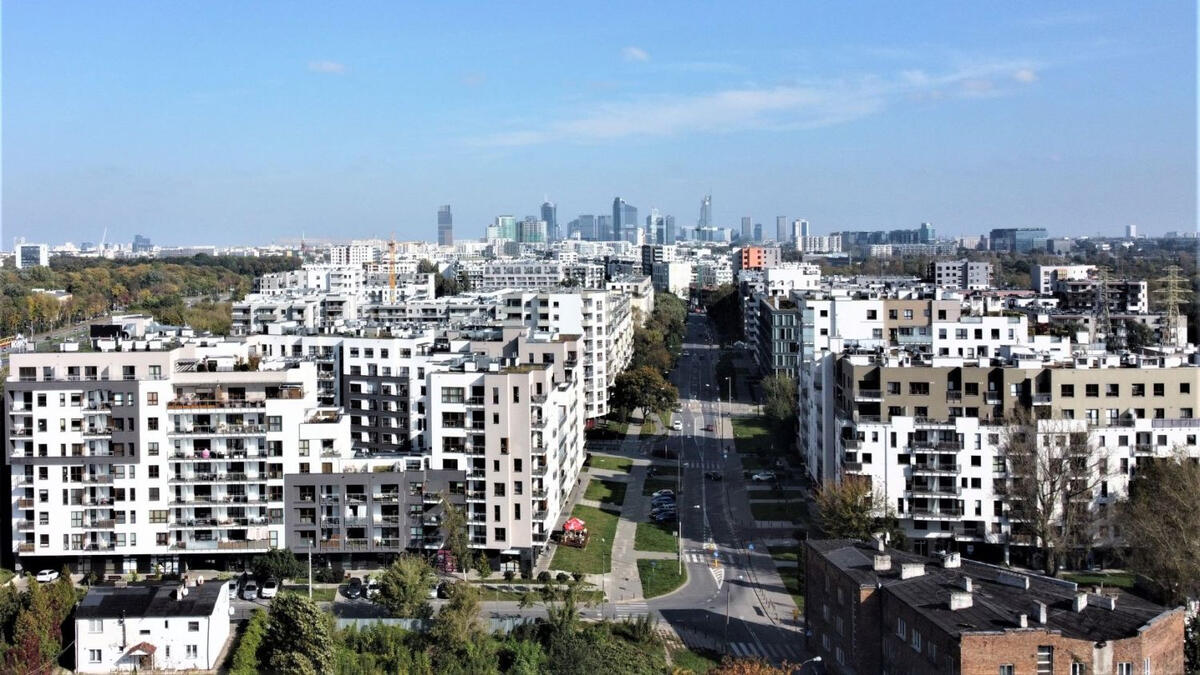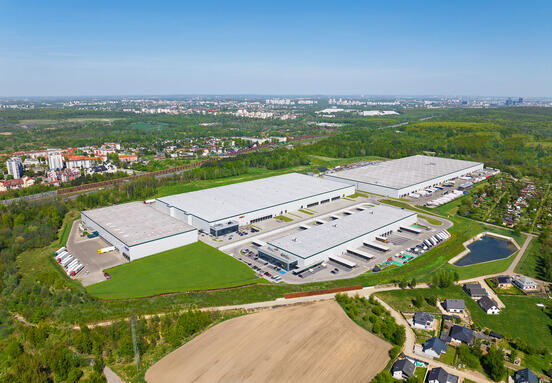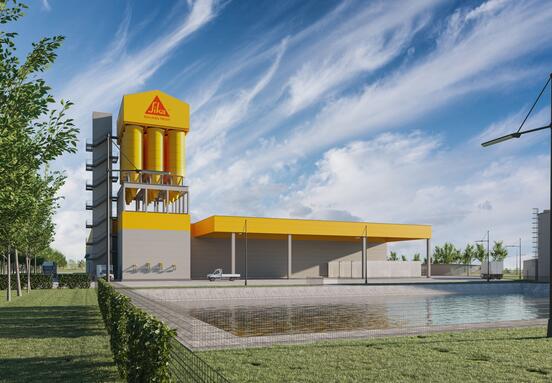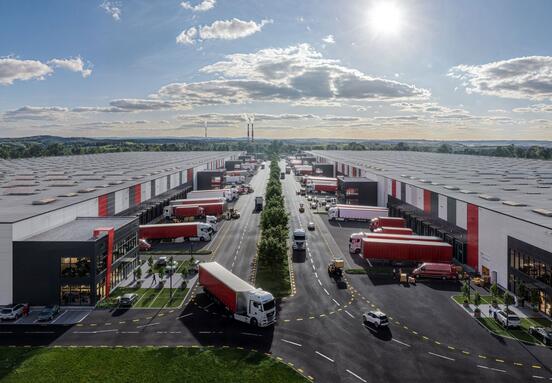As expected, 2023 got off to a rocky start. The first quarter’s volume closed at the level of €651 million, with Avison Young's projections suggesting that the upcoming months are unlikely to witness any notable acceleration. This decline can be attributed to the ongoing economic uncertainty, mounting financing costs, inflation, and pricing clash, as buyers await discounts. However, the number of transactions is expected to rise in the second half of the year, particularly once interest rates stabilize and prices attain equilibrium.
Over the initial months of 2023, Poland recorded the closure of 26 commercial real estate deals. Despite the low investment volume, Q1 managed to sustain moderate liquidity, with opportunistic and value-add transactions, along with redevelopments, dominating the market. Industrial investors focused mostly on assets from the primary market and in Western Poland. Meanwhile, all office sector transactions took place in Warsaw, and opportunistic shopping centres were the preferred choice for retail acquisitions. Investors hailing from the USA and CEE region continued to display the highest activity levels, focusing on warehouse and office products.
Industrial market - sector in the adaptation period
Currently, the warehouse sector is grappling with a slowdown in investments, as price expectations for warehouse products have become the focal point of many discussions. While owners are looking to sell at a high price, buyers are hesitant and banking on discounts. As a result, the adaptation process has been ongoing for several months, with a visible pressure to reduce sale prices which is then reflected in higher yields. To compensate for this difference, owners or developers are enjoying unprecedented increases in base rental rates.
In Q1 2023, industrial investments amounted to €401 million, representing 62% of the total investment volume. However, the biggest deal, namely the acquisition of Campus 39 in Wrocław by P3 from Panattoni, was responsible for over one-third of this figure. All 12 transactions in the industrial sector were single assets, with no warehouse portfolios sold. The trend of investors focusing on Western Poland is becoming increasingly evident, with 8 out of 12 industrial properties transacted in the analysed period located close to the country's western border. Moreover, 9 out of 12 warehouses were acquired in the primary market.
"New investments are currently hampered by challenges in securing financing for projects, higher costs, limited availability of materials and workforce, and reduced tenant activity. However, we expect that newly constructed warehouse facilities will achieve a certain balance this year. Transactions concerning slightly older warehouse properties will still be analysed individually in terms of rent and final value per square meter. The seemingly lower capitalization rate will result from the greater potential of a given project at the time of renegotiation of lease agreements," comments Bartłomiej Krzyżak, Senior Director, Investment at Avison Young.
Retail market Not prime, but tempting
Although it is still the beginning of 2023, it is unlikely to keep the upward retail investment volume trend, restarted after the pandemic in 2021. Last year, two unprecedented transactions, namely EPP JV’s and the acquisition of Forum Gdańsk, accounted for over 60% of the total volume transacted in the retail sector. Unfortunately, this year began with only 8 deals focusing on convenience-based shopping centres and redevelopments, with no prime or large assets and only one small retail park.
In Q1 2023, the retail investment volume amounted to €134 million, making up 20% of the total investment market in Poland. Among 8 retail transactions, there were 2 regular shopping centres, namely Atrium Molo in Szczecin and Ferio in Legnica. The biggest redevelopment deals were the acquisitions of Europa Centralna in Gliwice by Mitiska REIM and Multikino in Warsaw by GH Development. Avison Young represented the seller in the divestment of four convenience-based, small shopping centres located in Western Poland.
"Although only one retail park was sold in Q1 2023 (in Rawa Mazowiecka), we believe that retail parks will continue to be an important element of the sector, and investors will continue to buy these assets. As for the shopping centres, the main focus will be on schemes that offer an attractive price and are situated in good locations with the possibility of maintaining or obtaining financing from an existing lender," comments Artur Czuba, Associate Director, Investment at Avison Young.
Office market - the capital hot spot
It seems that the regional office market in Poland has not seen much investor interest in the first quarter of 2023, with all 6 office buildings sold being located in Warsaw. These properties were considered "core+" or opportunistic assets, and 5 of them were located outside the city centre.
The total investment volume of the office sector was the lowest, with only €116 million transacted in 6 deals, reflecting an 18% share in the total volume in Q1 2023. Nevertheless, office assets attracted the newcomer from Lithuania - EIKA Asset Management, who acquired the Celebro office building in the lower Aleje Jerozolimskie area, with Avison Young representing the seller - White Stone Development.
“In the upcoming quarters of 2023, we expect that investors will continue to focus on value-add and opportunistic assets, both in Warsaw and main regional cities. Unfortunately, the interest in core assets will be smaller as there has not yet been a noticeable lowering of expectations regarding price levels for this asset class, and rising financing costs are not helpful in achieving expected returns. However, it is only a matter of time before the office towers in the centre of Warsaw will eventually attract investors again,” comments Marcin Purgal, Senior Director, Investment at Avison Young.
PRS - a sector with ambitious construction plans
Institutional rental housing (PRS) is a developing real estate category in Poland that is attracting both tenants and investors. Despite the fact that homeownership is firmly rooted in Poland, we are just experiencing a change in this attitude. In the face of economic uncertainty, PRS housing – due to its function – creates a promising potential for all parties.
As a result, the PRS sector is expected to continue to grow in Poland, with many investors planning to build around 20,000 new rental apartments in the coming years, doubling the current stock. Additionally, the early stage of this sector in Poland makes it attractive to both local and foreign investors, who may be able to achieve higher rates of return than in Western European markets.
What’s next?
It seems that despite the general slowdown of investment activity in Europe, Poland's real estate market remains attractive to both local and foreign investors. The country's market is still active, with an influx of new capital from the Baltic countries and Scandinavia, as well as continued interest from investors from Central and Eastern Europe and a few from Western Europe. In this time of uncertainty, we can say that Poland is enjoying and will continue to enjoy the interest of investors - it is one of the most active markets, across all segments, offering higher rates of return than Western Europe.
However, as the economic uncertainty continues, difficult discussions between parties may arise, driven by the pressure to lower prices, and the issue of financing will remain crucial - currently banks are very selective in granting loans. Nevertheless, with the promise of higher rates of return than in Western Europe, we expect the Polish real estate market to remain one of the most liquid in the region of Central and Eastern Europe.
Source:property-forum.eu








